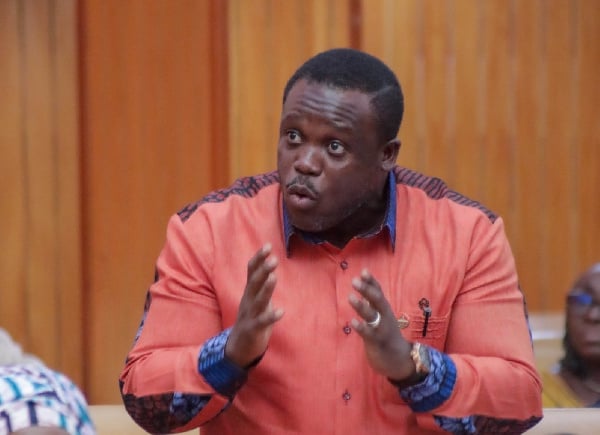Proponents of the Human Sexual Rights and Family Values Bill, commonly referred to as the Anti-Gay Bill, are taking to the streets in a peaceful protest aimed at the Supreme Court. Scheduled for October 8, 2024, the demonstration will commence at the Kwame Nkrumah Circle in Accra, culminating in a petition submission to both the Attorney General and Chief Justice Gertrude Torkonoo. The supporters, which include various religious organizations and stakeholders, are motivated by their desire to expedite the legal proceedings surrounding the bill, which has been stalled since its passage by Parliament on February 28, 2024. The Supreme Court had previously ruled on July 17, 2024, to postpone judgments on anti-gay cases until all related legal issues are resolved, escalating frustrations among supporters of the bill.
The Human Sexual Rights and Family Values Bill aims to criminalize LGBTQ+ activities in Ghana, imposing severe penalties for those found engaging in such acts. This legislation has ignited a fierce national debate regarding LGBTQ+ rights and the wider implications for Ghanaian society. Sam George, the lead advocate for the bill and a Member of Parliament, expressed his discontent over the Supreme Court’s failure to prioritize the hearing of the bill. During an interview, he underscored the urgency of addressing the bill and criticized the court for its perceived lack of action, likening the situation to a “stage judgement” where the judiciary is, in essence, hindering the legislative process. He claimed this inaction effectively restrains Parliament from fulfilling its constitutional responsibilities, causing a ripple effect on legislative initiatives.
Supporters of the bill believe that further delays in its adjudication do not align with the national interest. Sam George pointed out the inconsistency of the Supreme Court, which has previously managed to hear cases during judicial vacation periods, suggesting that the current situation reflects a lack of seriousness regarding this pressing issue. He highlighted that the collective decision made two months prior by the bill’s sponsors and various religious leaders to march towards the Chief Justice’s office signals a critical demand for action. The march is not designed to be political; rather, it seeks to underscore the necessity for a clear timetable on the court’s proceedings concerning this contentious legislation.
Passed by Parliament earlier this year, the Human Sexual Rights and Family Values Act criminalizes not only LGBTQ+ activities but also their promotion and advocacy, with offenders facing potential imprisonment ranging from six months to three years. Advocates for the bill argue that it is essential for preserving traditional family values within Ghanaian society. On the other hand, opponents vehemently contend that the bill undermines crucial human rights and exacerbates stigma against the LGBTQ+ community. International scrutiny has also intensified, with various entities raising alarms about the potential repercussions of the bill not just for human rights but also for Ghana’s economic relations with the global community.
Legal challenges to the bill’s validity have arisen from multiple fronts, including lawsuits initiated by private legal practitioners and gender activists who advocate for its annulment. Notable figures such as Richard Dela Sky and Dr. Amanda Odoi have filed cases against the bill, with the latter emphasizing its implications for human rights in Ghana. Additionally, law lecturer Prince Obiri-Korang from the University of Ghana has also taken steps to contest the legislation in court. Meanwhile, the bill’s future hangs in the balance as it awaits President Nana Addo Dankwa Akufo-Addo’s signature, a move that is yet to materialize amid significant domestic and international pressures.
The ongoing debate surrounding the Human Sexual Rights and Family Values Bill underscores the complex social landscape in Ghana regarding LGBTQ+ rights. Proponents frame the legislation as a necessary measure for protecting cultural norms and upholding perceived family values, while detractors criticize it as a blatant violation of fundamental human rights. This dichotomy highlights the struggle between traditional beliefs and the principles of equality, which resonates deeply in current societal discussions. With the scheduled protest approaching, both supporters and opponents of the bill remain vigilant, anticipating the Supreme Court’s next moves and how this contentious issue will evolve in the coming months, reflecting Ghana’s broader cultural tensions surrounding human rights and sexual orientation.


